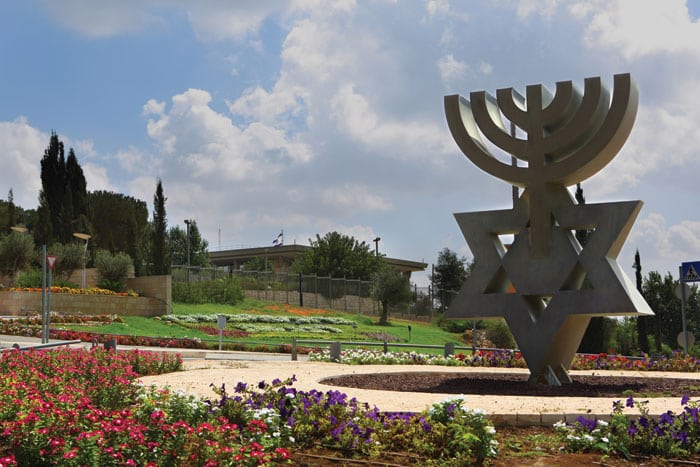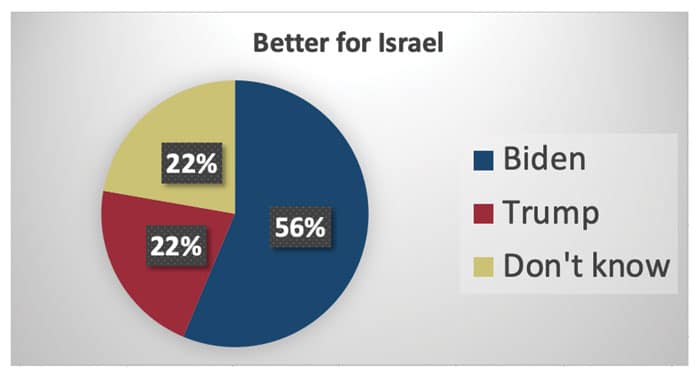 kgfoto/Getty Images
kgfoto/Getty Images Upheavals of the kind that Israel is going through are often followed by significant social, political and ideological changes. Many of them are difficult to predict in advance. Some of them are quickly noticeable. The First Lebanon War led to the departure of PM Menachem Begin, and subsequently, a deep change in the character of the Likud Party. It greatly strengthened the Israeli left. The Yom Kippur War was followed by a wave of emigration. Nineteen-seventy-four was the year in which the highest number of Israelis left the country. Some of them thought that the country was lost. They spent a lifetime abroad waiting for the disaster that never came. Some of them might feel that they are witnessing it now.
In retrospect, the emigration of 1974 turned out to be a passing trend of little significance. The Yom Kippur crisis had much more important outcome: A political upheaval that heralded the end of the Labor Party as the generative political force of the country – and a peace with Egypt that heralded the possibility of the Arab world’s recognition of the reality in which Israel is a permanent fixture.
When positions on the Israeli-Palestinian conflict are measured, the public is moving to the right. When positions on the political parties in Israel are measured, the public is moving to the left.
What will happen to Israel as a result of the current crisis? It depends on the results of an event that is still ongoing. And yet, some trends are already in motion. Here is one, which presents a kind of paradox. The Jewish public in Israel is moving to the right — and the Jewish public in Israel is moving to the left. How is that possible? Because the move it is not the same move. The shift to the right is ideological. The shift to the left is political. In other words: when positions on the Israeli-Palestinian conflict are measured, the public is moving to the right. When positions on the political parties in Israel are measured, the public is moving to the left.
It makes sense that shocking security threats provoke ideological changes. If back in the ’90s one thought that Palestinian leader Yasser Arafat was a partner for peace, and then, at the 2000 Camp David Summit, one found out that he was not a partner, and then, in the Second Intifada, one found out that Arafat is a murderous terrorist — it was only natural for one to change one’s position. Thus, in the first decade of the millennium the Israeli public moved rightward, never to move back. So much so, that the Palestinian issue, which had not disappeared as a challenge, had almost disappeared as a significant issue in the public discourse. In the last year Israel was debating a “legal reform.” In the last five years it was torn over yes or no to Bibi. The debates of the past, that began after the Yom Kippur War, when “Gush Amunim” (the settler movement) and “Peace Now” (the peace camp) were both established, almost disappeared. This was the result of the Second Intifada. This was the result of the shift to the right.
And now the public says, again, that it is moving rightward. Fifty percent of Jews in Israel estimate that “society has become more right-wing.” Only 4% estimated that it is becoming “more left-wing.” And when we ask Israelis what happened to them personally, about one-tenth of the voters of the opposition parties say that they have moved more to the right, and close to a third of the voters to the coalition parties say that they have moved more to the right. In total, about one in five Jews in Israel says that he or she moved to the right.
But, as mentioned, this is not the only thing that happens. Parallel to this ideological shift rightward, there is a political shift leftward. But here we need to be precise: when we say “left” in this case we do not mean a mass movement of Israelis to the leftist parties. The movement is from the right to the center-right and center. And it is not a mass movement, but a movement noticeable enough to have the ability to alter the outcomes of future elections, when they occur. About a quarter of Likud voters now say they will not vote for Likud. About a third of Religious Zionist Party voters are in a similar situation. The major opposition parties do not lose voters.
Hence, the ideological-political paradox: a shift rightward and a shift leftward at the same time. The hardening of positions on the Israeli-Palestinian conflict, alongside a search by quite a few right-wing voters for an alternative that is not as right-wing as the current coalition. How will this process end? One can see at least three possibilities: either at some point the process will reverse itself (ideologically or politically) for some reason; Or it will lead centrist parties to become more rightwing and thus provide a political home to a new crowed; Or maybe what we see here are the seeds of new party between the center and the right. A right-wing party that is not currently in the coalition. To be determined after the war.
Something I wrote in Hebrew
Biden is Israel’s friend, and Israelis begin to internalize this fact:
How long will the romance last? You can already hear complaints about Biden. Although he talks nicely and sends weapons, he limits land entry, or wants to renew the peace process, or over-emphasizes the need for humanitarian aid to the Palestinians. Israelis sometimes have a tendency to get confused and think that the American president is their president. They have a tendency to think that his main job is to work for them and agree to their every request … But the story now is a story of transformation: From loving Trump to loving Biden. For the time being … (see graph below).
A week’s numbers
A survey of Jewish Israelis by the Jewish People Policy Institute (JPPI) asked if it’s better for Israel to have Biden or Trump win the 2024 US election.

A reader’s response:
Or Lotan asks: “Are Israelis at all concerned about American campuses and the rise of antisemitism?” Answer: Yes they are, but they will not halt needed military operations to remedy this situation.
Shmuel Rosner is senior political editor. For more analysis of Israeli and international politics, visit Rosner’s Domain at jewishjournal.com/rosnersdomain.























 More news and opinions than at a Shabbat dinner, right in your inbox.
More news and opinions than at a Shabbat dinner, right in your inbox.